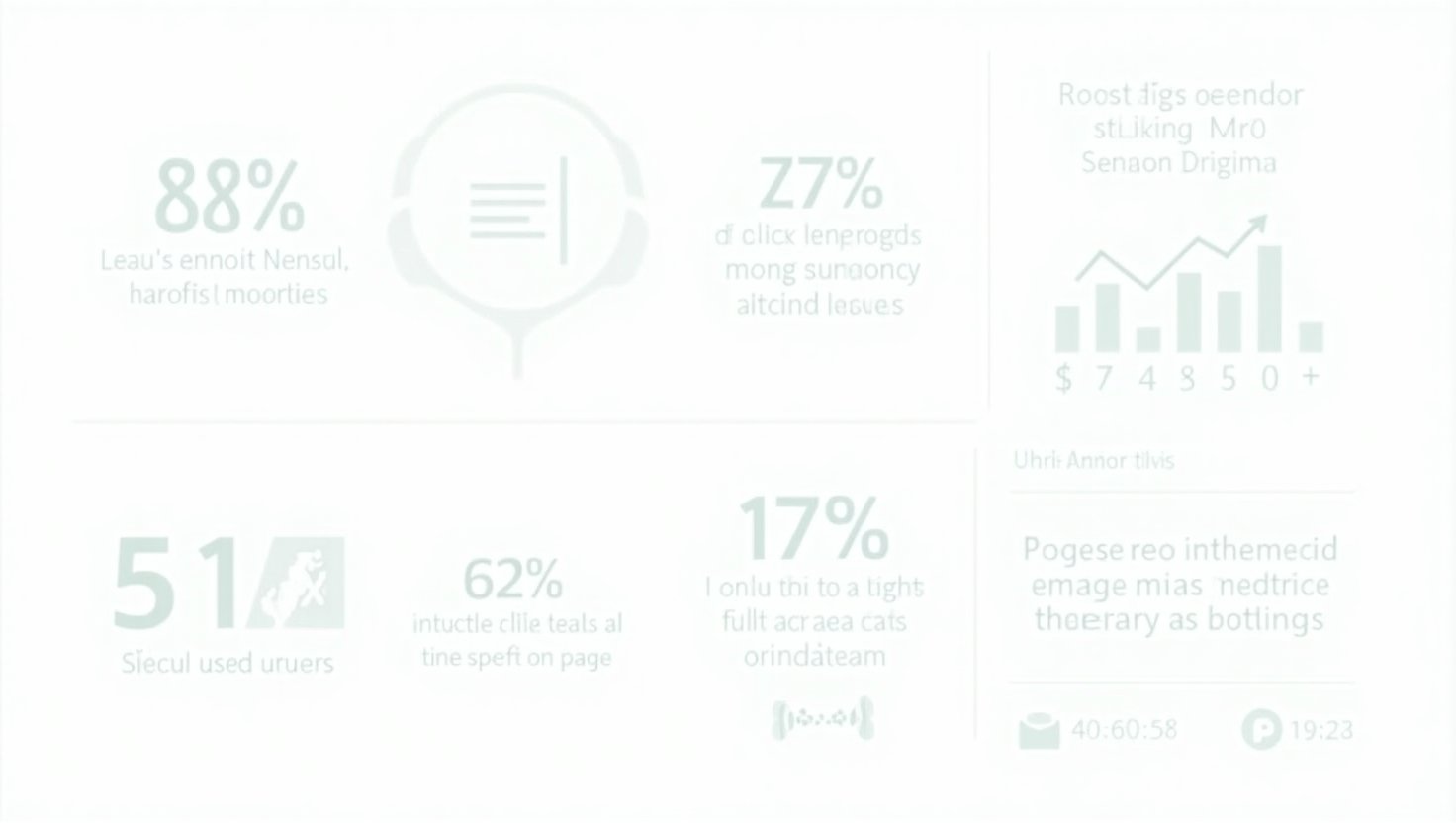In today’s fast-paced digital world, AI-driven search summaries from Google are reshaping the way information is accessed and utilized, with profound implications for SEO strategies. These brief overviews, prominently displayed at the top of search results, act as both immediate answers for users and complex entities that introduce significant challenges—particularly within high-stakes sectors such as law, healthcare, and finance.
Understanding how AI summaries intersect with the intricacies of SEO in these critical industries is essential, as the stakes involve not only visibility but the very fabric of trust and authority these fields demand. Inaccuracies or misleading information can lead to severe repercussions, from legal dilemmas to health-related emergencies.
As Google’s algorithms evolve, businesses within these domains must reassess their SEO approaches, focusing on building trust and establishing authority to thrive in an AI-enhanced environment. Navigating this new territory is vital, as it could determine success or failure in some of society’s most crucial sectors.
User Adoption Data for AI-Generated Summaries in Search
Recent research highlights significant user adoption trends regarding AI-generated summaries in search engines:
- Encountering AI Summaries: According to a Pew Research Center study conducted in March 2025, 58% of U.S. adults reported seeing AI-generated summaries in their Google search results (Pew Research).
- Click-Through Rates: This study also noted a decline in click-through rates when AI summaries are present. Users were less inclined to click on links associated with results containing AI summaries—rates dropped to 26% compared to 16% on results without them (Pew Research).
- User Engagement: A YouGov survey conducted in February 2025 revealed that 67% of respondents noticed AI-generated summaries in their searches, with 38% indicating they read them in half or more of their searches (YouGov).
- Generational Usage: The same survey indicated more engagement with AI responses among younger users. Notably, 59% of Gen Z respondents and 56% of Millennials utilized AI summaries in at least half of their searches (YouGov).
- Impact on Web Traffic: Research from Bain & Company highlighted a significant trend: about 60% of searches now conclude without users clicking through to another website, a shift attributed to the direct answers provided by AI-generated summaries (Bain & Company).
These findings illustrate the transformative effect of AI-generated summaries on user behavior, search practices, and wider web traffic patterns. As AI continues to shape search interactions, understanding these trends will be crucial for businesses and marketers.

Implications for SEO Strategies in the Era of AI-Generated Summaries
The emergence of AI-generated summaries fundamentally alters the SEO landscape, particularly in high-stakes industries such as healthcare, finance, and law. In these sectors, the implications of AI summarization extend beyond mere visibility; they encompass trust, authority, and the sustenance of accurate information dissemination.
Trust and Authority
As AI summaries increasingly dominate the top search results, the criteria for gaining user trust and establishing authority have evolved. High-stakes industries, already burdened with the necessity for accuracy, must now enhance their credibility to combat misinformation. Google’s algorithms appear to favor sources that demonstrate expertise and authoritativeness (the E-E-A-T principle: Experience, Expertise, Authoritativeness, Trustworthiness) in their content. Therefore, businesses are urged to focus on providing comprehensive, well-researched, and credible information to rise in search rankings.
Visibility Challenges
The fact that AI-generated summaries often provide direct answers can diminish click-through rates to traditional web pages. High-stakes sectors could find their organic traffic decreasing as more users rely on AI for immediate responses. In a study reported by Pew Research, it was noted that users were less likely to click on links associated with AI summaries, raising concerns about visibility. As a result, companies need to rethink their web strategies and might need to consider using structured data and schema markup to enhance the representation of their content in search results.
Emphasis on Content Quality
Integrating quality control for content is more critical than ever. Brands must invest in creating top-tier content that addresses the specific queries of their target audience. In the legal and healthcare industries, where misinformation can lead to severe consequences, developing quality assurance processes will be vital. Additionally, updating content regularly and ensuring that it meets current standards of accuracy can reinforce a company’s position as a trusted source.
Adapting to AI Inclusion
SEO strategies will need to adapt to the reality that AI-generated responses are often the first point of contact for users. As a result, businesses must work strategically not only to optimize for traditional user searches but also to ensure that their content is favorable for AI algorithms. This may include fostering partnerships with authoritative sites, engaging in content collaboration, and promoting high-quality backlinks to increase their visibility in both human and AI-driven search results.
The Risks of Misinformation
Furthermore, it is crucial to recognize the potential hazards of relying on AI-generated content. What happens when someone asks Google a medical or legal question and receives a wrong answer? Misinformation in these critical areas can lead to severe consequences, which underscores the pressing need for businesses to ensure accuracy and reliability in their content.
In conclusion, the intersection of AI-generated summaries and SEO strategies is unavoidable. For high-stakes industries, adapting to this transformation is crucial to ensuring ongoing visibility, relevancy, and trustworthiness in an evolving digital landscape.
Key Strategies for Enhancing Visibility and Trust in Content
- Focus on Trust and Authority: Build credibility by emphasizing accurate and well-researched information that aligns with Google’s E-E-A-T principle.
- Adapt Strategies for AI Responses: Ensure content is optimized not only for traditional SEO but also meets AI algorithm criteria to be favored in AI-generated summaries.
- Enhance Content Quality: Invest in high-quality, concise content tailored to address specific queries directly and effectively.
- Utilize Structured Data: Implement schema markup to enhance how content is represented in search results, improving visibility.
- Regular Content Updates: Maintain accuracy and relevance by regularly updating existing content to reflect current standards and information.
- Monitor User Engagement: Track how users interact with AI-generated summaries to adjust strategies and enhance click-through rates on traditional links.
- Promote Source Transparency: Clearly cite authoritative sources to foster user trust and mitigate misinformation risks associated with AI-generated responses.
These strategies are essential for businesses in high-stakes industries to enhance visibility while maintaining trust and authority in a rapidly evolving SEO landscape.
Analysis of Source Transparency in AI-Generated Summaries
In the realm of AI-generated summaries, particularly in high-stakes industries such as legal and healthcare, source transparency emerges as a crucial factor that mitigates the risks associated with misinformation. The significance of transparency can be broken down into several key areas:
- Misinformation Risks: Perhaps the most pressing issue with AI-generated overviews is their potential to produce erroneous information, often referred to as hallucinations. In fields where accuracy is paramount, such as law and healthcare, these inaccuracies can lead to dire consequences for users seeking reliable information. Ensuring that AI outputs reference credible, authoritative sources is essential for maintaining the integrity of the information provided.
- Trust and Authority: Establishing trust becomes vital when AI-generated content takes precedence over traditional sources. Users should be able to trace the origins of the information to determine its legitimacy. High-stakes industries thrive on trust, making it imperative for platforms to prioritize transparency by prominently displaying citations and source information.
- Impact on Decision-Making: Professionals in legal and healthcare sectors rely heavily on accurate data to make informed decisions. If AI-generated summaries contain inaccuracies, they can mislead these professionals, resulting in potentially serious legal consequences or health risks. Therefore, ensuring source transparency serves to protect both providers and consumers by reducing the likelihood of poor decision-making driven by misinformation.
- Industry Compliance: Both legal and healthcare sectors are subject to strict regulations regarding the dissemination of information. By ensuring that AI-generated summaries reference credible sources, these industries can align their practices with compliance standards and uphold the integrity of their information.
- Consumer Behavior: Research indicates that users are increasingly less likely to click on links that accompany AI-generated summaries. By understanding the sources behind these AI-generated responses, users can better evaluate the reliability of the provided information, influencing their behavior regarding further information searches.
In summary, enhancing source transparency in AI-generated overviews is crucial for fostering trust, combating misinformation, and maintaining high standards in sensitive fields where incorrect information can have serious ramifications.
| Element | Traditional SEO Strategies | AI-Generated Search Strategies |
|---|---|---|
| Trust Building | Focus on long-established standards and reputation, often requiring years of consistency in high-stakes industries like law and healthcare. | Quick responses create immediate trust, but can also lead to misinformation. Trust must be built continually through reliable citations and sources. |
| Authority | Generally relies on backlinks from reputable sites over time to build authority. | Emphasizes the E-E-A-T framework (Experience, Expertise, Authoritativeness, Trustworthiness) as crucial for ranking in AI summaries. |
| Content Quality | High emphasis on in-depth, comprehensive content to improve search visibility. | Must ensure clarity and accuracy to maintain presence in AI summaries, focusing on concise, trustworthy information. |
| User Engagement | Engagement metrics are based on click-through rates and time spent on pages. | Engagement with AI summaries affects traditional metrics as users may not click through, impacting traffic patterns. |
| Adaptability | SEO strategies evolve slowly, responding to major algorithm updates. | Need for quick adaptability as AI responses dominate search results, necessitating real-time optimization strategies. |
In summary, the emergence of AI-generated summaries marks a pivotal transformation in the SEO landscape, particularly impacting industries that hold significant societal responsibilities, such as healthcare, finance, and law. As professionals in these areas navigate the evolving complexities introduced by AI technologies, the focus on establishing trust, authority, and delivering accurate information must intensify.
Organizations face pressing challenges due to the risks of misinformation, prompting a need for revising SEO strategies to prioritize high-quality content that aligns with thorough accuracy standards. Adopting the E-E-A-T framework—emphasizing Experience, Expertise, Authoritativeness, and Trustworthiness—has become vital for sustaining user trust and positioning in a digital environment increasingly dominated by AI-driven summaries.
For businesses within high-stakes sectors, achieving success now demands a commitment to being recognized as reliable sources of information, moving beyond mere search rankings. By embracing these necessary adjustments, companies will not only improve their visibility but also uphold the integrity of their offerings, ultimately thriving amidst the changes that AI brings to digital engagement.

SEO Keyword Optimization for AI Summaries and Strategies
To enhance the search engine optimization of this article, we will incorporate a broader range of SEO keywords related to “AI summaries” and “SEO strategies.” This will help attract a wider audience searching for relevant information.
Here are some effective keyword variations to integrate into the content:
- AI Summaries: Include terms such as “automated content summaries,” “AI-generated content overviews,” and “AI content summarization” to capture searches from users interested in concise, AI-driven summaries.
- AI-Generated Content: Utilize keywords like “content created by AI,” “AI writing tools,” and “machine-generated articles” to appeal to those looking for AI-created content solutions and innovations.
- SEO Strategies: Incorporate phrases like “AI-driven SEO tactics,” “optimized AI content strategies,” and “machine learning in SEO” to engage users interested in leveraging AI for their search optimization needs.
Recent Trends in AI Summaries and SEO
Research supports the significant impact of AI on SEO strategies and content creation:
- A study showed that 74.2% of new content includes AI-generated text (ahrefs.com).
- Businesses leveraging AI for their content and SEO strategies reported a 70% increase in organic traffic (mailmodo.com).
- 67% of marketers noted improved content quality by using AI tools (semrush.com).
- Companies integrating AI have experienced a higher ROI in their content marketing, with 68% indicating better returns (semrush.com).
By proactively incorporating these keywords and trends into the article, we can significantly enhance its SEO capabilities, ensuring better visibility and engagement with the target audience.

